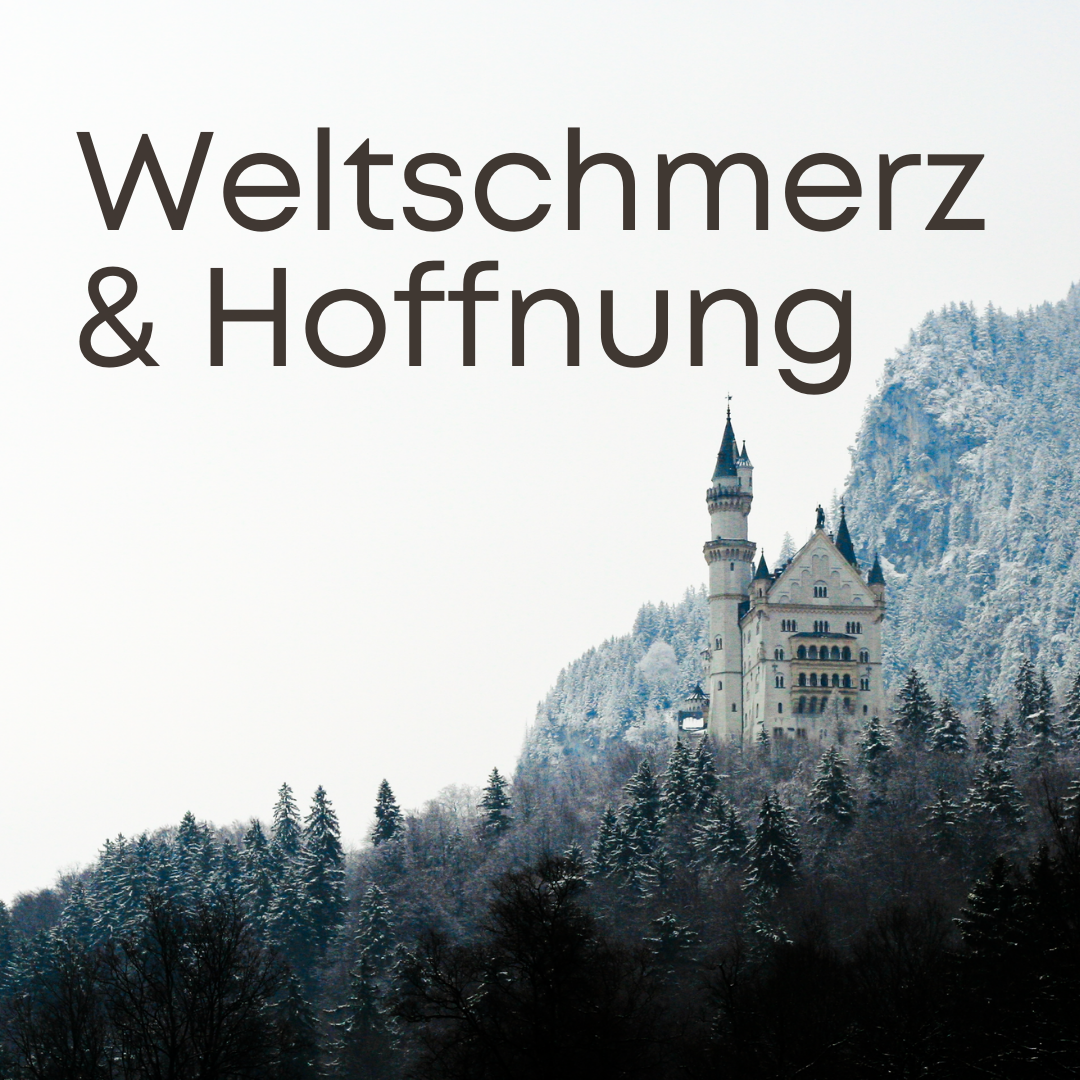
Need some Words of Encouragement?
Weltschmerz & Hoffnung
When my ancestors came to America in the 1800s, their impressive and regal-sounding name, ?Vonderburg,? was somehow changed to the somewhat unwieldy ?Funderburk.? At family reunions as a kid, in the midst of seeing cousins and playing basketball and dominoes, I?d peruse a book on display about our family's heritage. On the cover, there was a splendid red and gold coat of arms that included a castle. I came to understand Vonderburg, in fact meant ?from the castle? and my impressionable little mind began to imagine my forbearers as kindly but magisterial Teutonic princes and princesses ruling beneficently over their Black Forest kingdoms. I've since learned that Vonderburg just as accurately meant ?from the town? or even less impressively, ?from the village.? Whatever the case, we?re from Germany.
I've never studied up on the long history of the country, but I have been to Munich once with a high school group. The word I used most, it turned out, was Viertelpf¸nder which I ordered from McDonald's (with cheese) several times. Quarter-pounders aside, I still know essentially no other German, until I was recently introduced to this word:
Weltschmerz
When they weren't entertaining or scaring children with ancient folkloric tales, the Brothers Grimm were compiling a comprehensive German Dictionary, known as Die Deutsches Wˆrterbuch. They first included Weltschmerz in 1827. It means world-pain or world weariness ? a sort of exhaustion of the spirit that descends upon us as we sense the sum of despair in the world. When I heard the word and identified it as something I've felt as the pandemic wears on, my mind quickly ran to the book of Galatians: ?Let us not become weary,? Paul writes, ?in doing good.? As Pauline exhortations go, this is a good one, but begs the question, how does one not become weary? We all get tired. Especially now.
I?m not a huge Harry Potter guy, but I?d quickly add that I have nothing against him, his colleagues, his fans, or the books. Having said that, my knowledge about the ?wizarding? world is about as woeful as my German. However, the one thing that always struck me as compelling was the explanation J.K. Rowling had for why the regular folks, the ?muggles? (and here I am speaking as one), are blind to the magic in the Harry Potter world, and that is, they?re just not looking close enough.
Though the Coronavirus continues to rage around the world, this past week, Pfizer and its German partner, BioNTech, announced preliminary results of their vaccine trials. The tests suggest it is more than 90 percent effective with no serious safety concerns or side effects. The New York Times added this:
To get a sense of how good these results are, it's worth considering licensed vaccines that people regularly receive. On the low end, influenza vaccines are 40 to 60 percent effective at best?By contrast, two doses of the measles vaccine are 97 percent effective?Pfizer's chief executive has said that it could have 30 to 40 million doses of the vaccine before the end of the year, enough for 15 to 20 million people to get an initial shot and a booster three weeks later?Pfizer and BioNTech [also] say they could ramp up to 1.3 billion doses a year?
We?re right to feel a sense of Weltschmerz from time to time these days, and we can't just snap out of it by meditating on Paul's instruction to ?not grow weary.? But if we don't celebrate the news from this German company and its American partner and express our deep thanks to God for answering our prayers as we've lifted up scientists, researchers, and pharmaceutical companies for these many months, then, we?re just, muggle-like, not paying enough attention.
Fortunately, the internet has made it unnecessary for me to track down a copy of Die Deutsches Wˆrterbuch, dust it off, and research more German. Instead, I just used Google to find another German word to use in my prayers this week:
Hoffnung (Hope)
God - Hope feels good. May the work of scientists, lab assistants, researchers, and pharmaceutical companies continue apace so the world, even in its weariness, can be made well again. Amen.
?Greg Funderburk





